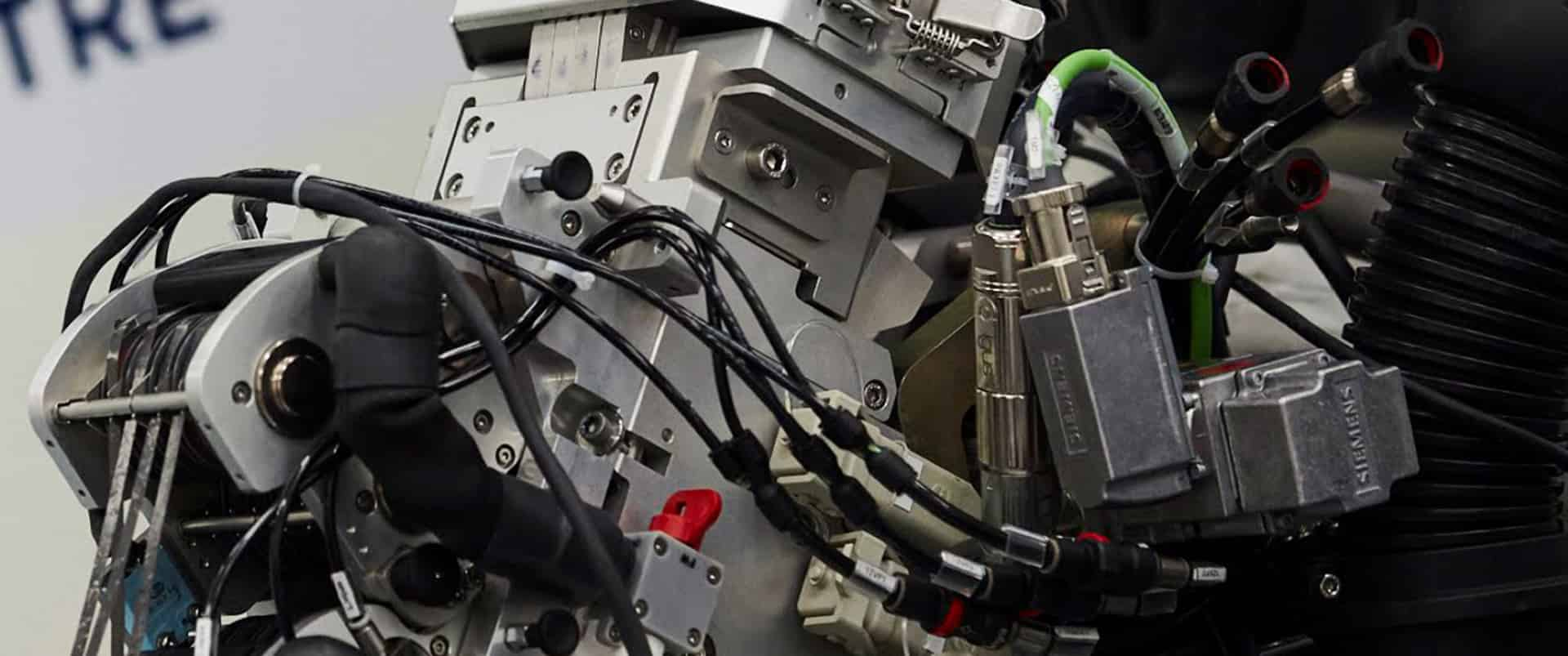04 May 2023

- The REFORM project seeks to become the catalyst for the creation of a green functional electronics supply chain that could replace metal and copper wiring in electronic devices and appliances.
- The project aims to replace metal wiring with bio-based conductive inks that can be printed onto recyclable materials, which can then be embedded into electronic devices.
- The market for printed electronics is expected to grow to over $19 billion by 2031.
- The project secured €3.59 million in funding from the European Union’s Horizon Europe programme and a further €1.4 million from UK Research and Innovation.
- Project website – reform-project.eu
The National Composites Centre will play a key role in the EU-funded REFORM project, which seeks to become the catalyst for the creation of a green functional electronics supply chain that could replace metal and copper wiring in electronic devices and appliances.
Researchers working on the €4.99 million project want to replace metal wiring with bio-based conductive inks that can be printed onto recyclable materials, which can then be embedded into devices or placed on surfaces using a de-bondable, organic and reversible adhesive.
The project builds on the advances that have been made in the field of printed electronics in recent years, the market for which is expected to grow to over $19 billion by 2031.
As they are lightweight and flexible, printed electronics can be integrated into existing products and are predominately used in the automotive and transportation industry, healthcare, consumer electronics, aerospace and defence, construction and architecture, retail and packaging.
However, despite having the potential to shape our lives, printed electronics have yet to be exclusively manufactured using renewable materials.
Marcus Walls-Bruck, Head of Hydrogen, National Composites Centre said: “The National Composites Centre has been working towards achieving fully sustainable pressure vessels, having recovered continuous fibre in previous research projects. Project REFORM looks to establish essential technology for future pressure vessels by integrating condition monitoring. The National Composites Centre will be contributing knowledge and expertise of pressure vessel design, manufacture and recyclability to demonstrate the ability to create future pressure vessel technologies and materials sustainably.”
The REFORM project, which is being led by an all-female team at Cidetec, a San Sebastian-based R&D company, has the potential to significantly reduce the amount of rare metals used in the fabrication of electronic devices and limit the proliferation of e-waste.
Project lead, Yolanda Alesanco, also believes that the project could give Europe an innovation lead in green functional electronics and contribute toward meeting the ambitions laid out in the European Green Deal.
Although typical devices contain limited amounts of metals and materials, they are produced on a massive scale. It has been estimated, for example, that there are 16 billion mobile phones in the world.
Each one of these devices contains non-renewable materials such as gold, copper, silver and palladium.
Often, these metals are embedded in ways that make extracting or recycling them extremely difficult or uneconomic.
To overcome this reality, we want to create an alternative means of constructing electronic components.
Where instead of using rare metals in devices, we employ sustainable materials such as organic adhesives, bio-based conductive inks and recyclable flexible substrates.
If we can achieve this, Europe will take the lead in this space. It will also enhance the continent’s commercial competitiveness and contribute to the ambitions outlined in the European Green Deal.
REFORM is a 42-month project and was awarded funding under the European Union’s Horizon Europe programme.
The project brings together world-leading academics, non-profit research organisations, industry experts and innovative businesses from across eight different European countries.


